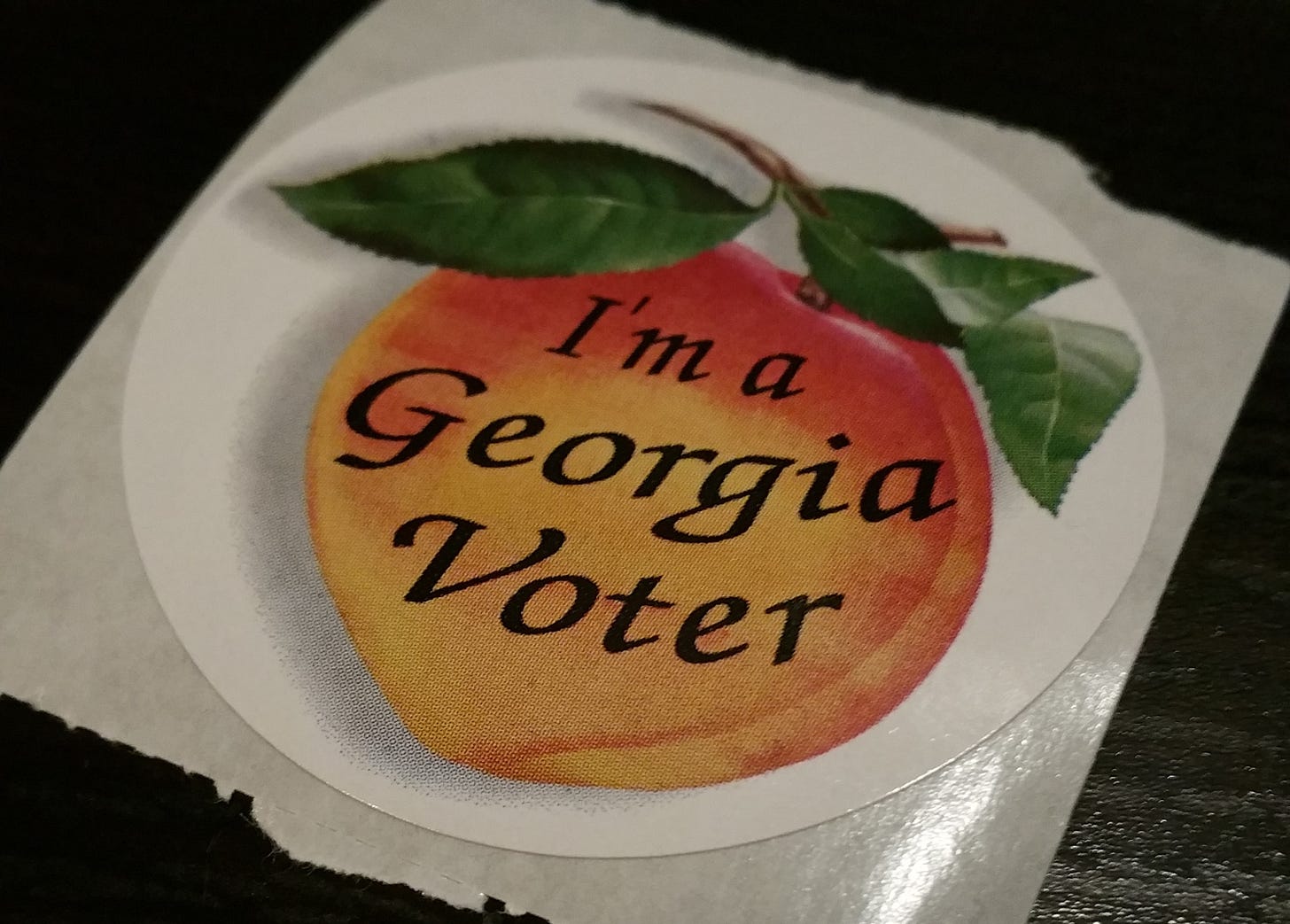Defund the police.
It is a sentiment I agree with, in the original meaning of the phrase, in that the police, in many cities, have extremely large budgets that they expend on force: riot gear, elite drug squads, killology seminars, and so on, that needs to be redistributed to things that actually help the communities they are supposed to protect and serve. I don’t think there should be no police, but there definitely needs to be different police.
Growing up white and middle classed as I did (I had no choice in either), the vast majority of my encounters with police were at school. They would come in and talk about how awesome cops are, and how bad drugs are, about how they protect us and keep us safe. But cops didn’t drive through my neighborhood. In fact, out in the wild, most of the cops I saw were on the side of the road with a radar gun, protecting the world from speeders.
My very first, non-school non-speed trap encounter with a cop, he rolled up on my girlfriend and I making out in my car in the parking lot of a park. In his defense, the park was closed (although it didn’t have gates or chains or anything to stop people from going there after hours – see: white and middle classed), and there could have been a murder or a rape or something going on. There wasn’t, but it isn’t out of the realm of possibility that a car in a dark park away from the road might be the sort of place a piece of shit garbage human being might do something untoward with someone else. Of course, once he saw that I was scared and he checked that the girl was fine, he didn’t need to be a complete dick about it. Which he was. I’m not going to go into it.
After that, since I was out of high school, it was back to seeing cops running speed traps. I was caught three times myself. Though as I got older, and in college, and didn’t have the curfew of a teenager, I did on occasion run into cops running road blocks checking for drunk drivers. People still drive drunk a lot, despite all the readily available alternatives, so this public safety function is still pretty worthwhile, I suppose, though I suspect like a lot of things cops do, there is a lot of privilege and racism baked into who they test and who they let go. For speeding tickets, however, I think technology has reached a point that if they actually care about safety and want to slow traffic, and it isn’t just a method to raise money and harass people, there are camera systems that can auto-ticket cars and remove cops from the equation.
But I can honestly say, the incident where my opinion of cops really began to sour was after my car was broken into. Again, growing up white and middle classed in the suburbs, car break-ins weren’t really a huge deal. Every once in a while you’d get some kids kicking up a little mischief, but that was really it. My first job in downtown Atlanta had a gated parking lot with security, so again, break-ins really didn’t happen, although that was because of security not cops. My second downtown job, however, didn’t provide parking to contractors, so I had to park in the pay lot across the street. It was one of those where you park in a numbered spot, then you put your money in the matching numbered slot on a big metal board. No attendant. No security. There were homeless people though. They slept behind the vacant building and behind the dumpsters, and once or twice a week I’d give them a dollar or two. Lots of people who parked there did. And the homeless would keep the thieves away.
See, thieves don’t like being watched, and the homeless people were always there. Except, after a couple months of working downtown and parking in that lot, the cops showed up, and ran off all the homeless. For a day or two, the cops drove by once an hour or so to make sure no homeless people returned, and then the cops stopped coming. And the thieves swept in and broke into a bunch of cars – all the ones they could easily steal the stereos from. My car, a Jeep Cherokee, was one of them. They smashed the small window on the rear passenger side door, reached in with a stick or something and pushed the automatic door lock, hopped in, popped the stereo out of the dashboard, and closed the door.
When I discovered the break-in, I called the cops. An hour later they arrived. There were a dozen or so of us standing around by then. They talked to each of us, asked what was stolen, and gave each of us a case number. I asked, naively, if they were going to collect any evidence. One of them said something like “This ain’t CSI.” I don’t remember exactly, but basically just dismissed the idea. The case number, you see, wasn’t about the crime or solving it. It was just paperwork for the insurance companies. The number was required to file the claim so mine could send me a new stereo and a voucher to have it installed, and to have a glass company come to my home and repair the window. Side note: the small window on the rear door of a Jeep Cherokee is the most expensive piece of glass on the car.
Not long after, the homeless returned, and the thefts stopped. Then a number of months passed and the cops returned to clear out the homeless. Then the thieves came back. The second time my stereo was stolen, they broke the same window, pushed the automatic lock button, popped out the stereo, and closed the door. It was almost funny. I called the cops again, and in about 90 minutes they came by and gave me a case number. This time my insurance company just sent me a voucher for the stereo and installation, and sent the glass company out again.
The third time my stereo was stolen, surprise, surprise, was after the cops ran the homeless off again. I called the cops and this time they didn’t even come by. They just called me back, said they were kinda busy, and asked if anyone was hurt. I told them no, that the car was broken into when no one was around. He gave me a case number over the phone. The insurance company sent out the glass guys to fix the window again, and they sent me a check to cover the cost of a new stereo and installation.
I got a new stereo with a detectable face plate, which meant that the thieves stopped breaking into my car. At least until the time I fixed a flat tire on the way to work and left my roadside assistance kit visible in the back. They broke in and took it.
I started riding the bus to work after that.
As if the repeated thefts and disinterested cops weren’t enough, all of my cases were marked closed after the insurance paid. Maybe the thieves were caught, maybe they weren’t. Catching them wasn’t really the police’s job. Property theft just wasn’t important if no one got hurt or if the property wasn’t worth enough. And that’s when I started paying attention, when I started talking to people I knew about their run ins with cops. Too many of them had similar encounters. Crime happens. Cops show up or call, make some notes, leave. Insurance pays out for losses and damages. None of these were detectives, they were just beat cops. People that I knew who were victims of more violent crimes or much larger thefts, they’d get to speak to detectives and sometimes there was even some of the type of police work you see on TV. Perpetrators would even get arrested, sometimes.
My friends of color had different experiences. Getting pulled over a lot. Cops pulling up on them if they were hanging out somewhere. Cops breaking up parties. Cops stopping them when they were just walking down the street. I had stuff stolen four times and the cops didn’t do anything, but black people not doing anything illegal seemed to get a lot of police attention.
Now, again, I’m aware I live a pretty privileged life. Maybe there are places that we do need regular cops. But also, maybe what we need are rapid response teams for the really dangerous stuff, and a lot more detectives to track down and catch criminals after the fact. But also, so much crime is actually a symptom of other issues, and we could use more people working on resolving those underlying issues.
But certainly, and this is really a subject for another post, the vast majority of criminals don’t need jail time. They need community service, and probably they need help. They definitely don’t need to lose their job, to narrow their future job prospects, the be taken away from their families and responsibilities. The incarceration rate in this country is ridiculous, and it isn’t making things better. And again, another post is needed, but if it is determined we do need prisons, for-profit prisons is not the way to go.
That’s a lot of rambling, so I’ll stop now.

